5. Olivia de Havilland in Dark Mirror (1946)
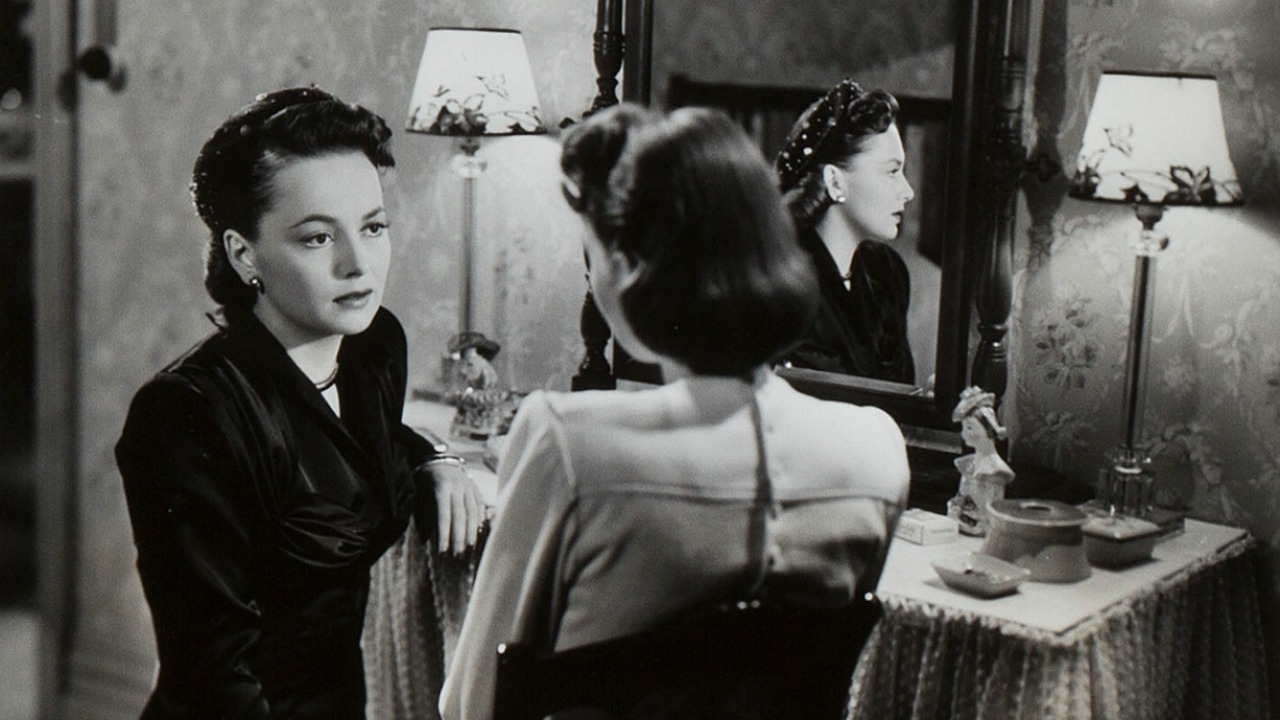
It was the adventures co-starred by Errol Flynn and her unforgettable role in Gone With the Wind, of course, that drove Olivia de Havilland to stardom during the 30s and early 40s. The second half of the latter decade, however, was the one that presented her as a truly poignant talent to behold, earning her three Oscar nominations and two victories in less than five years.
None of them were for Dark Mirror, unfortunately, but that’s more the movie’s fault than Havilland’s, since this silly little whodunit mystery didn’t have a lot to offer Academy voters, even though it was a film by Robert Siodmak, the director nominated on that same year for The Killers.
Havilland plays twin sisters Terry and Ruth Collins, both suspects of murdering the boyfriend of one of them. As both have alibis for that night, a psychiatrist is called in to try and determine which one was really responsible for the deed – Terry’s façade of sibling support rings a little falser than Ruth’s fragile, easily manipulated personality throughout the movie, but Havilland has fun with both of them, and gives just enough doubt for the spectator to hang around till the end. She’s terrific in a double performance for a film that barely deserves to have one of her, and that’s the mark of a truly great actor.
4. Margot Kidder in Sisters (1973)
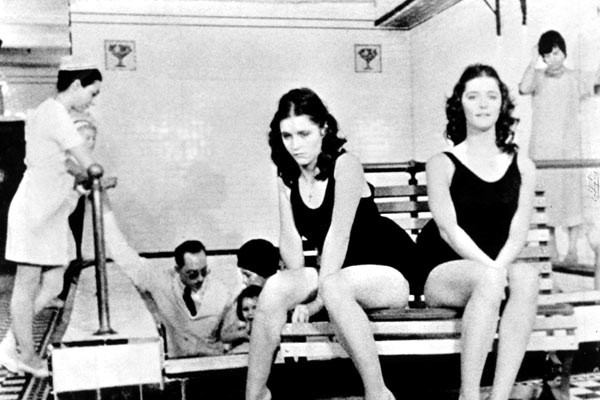
One of Brian De Palma’s most obvious homages to Alfred Hitchcock, 1973’s Sisters has a shocking twist at the end, a murder mystery, a sense of genuine dread, and a pair of brilliant performances by pre-Superman Margot Kidder, De Palma’s girlfriend at the time. She’s Danielle Breton, a young woman with a bustling modelling career whose twin sister Dominique comes to visit when their birthday is around the corner.
Problem is, in a fit of insanity, Dominique kills Danielle’s fling, a young man who just took her to dinner. Danielle tries to hide her sister and the body with the help of her ex-husband (William Finley), but a journalist who lives next door (Jennifer Salt) won’t let it go.
A straight-up murder mystery in the tradition of Rear Window that suddenly turns into a dark psychological thriller with a thrilling sequence of revelations, Sisters is founded on Kidder’s terrifically consistent performance, representing the sisters’ emotional turmoil in lingering close-ups of their faces, and deftly maintaining the mystery of what really happened the night of the murder up until the end of the film. An early De Palma gem that deserves to be rediscovered, Sisters is a brilliant idea executed well.
3. Nicolas Cage in Adaptation (2002)
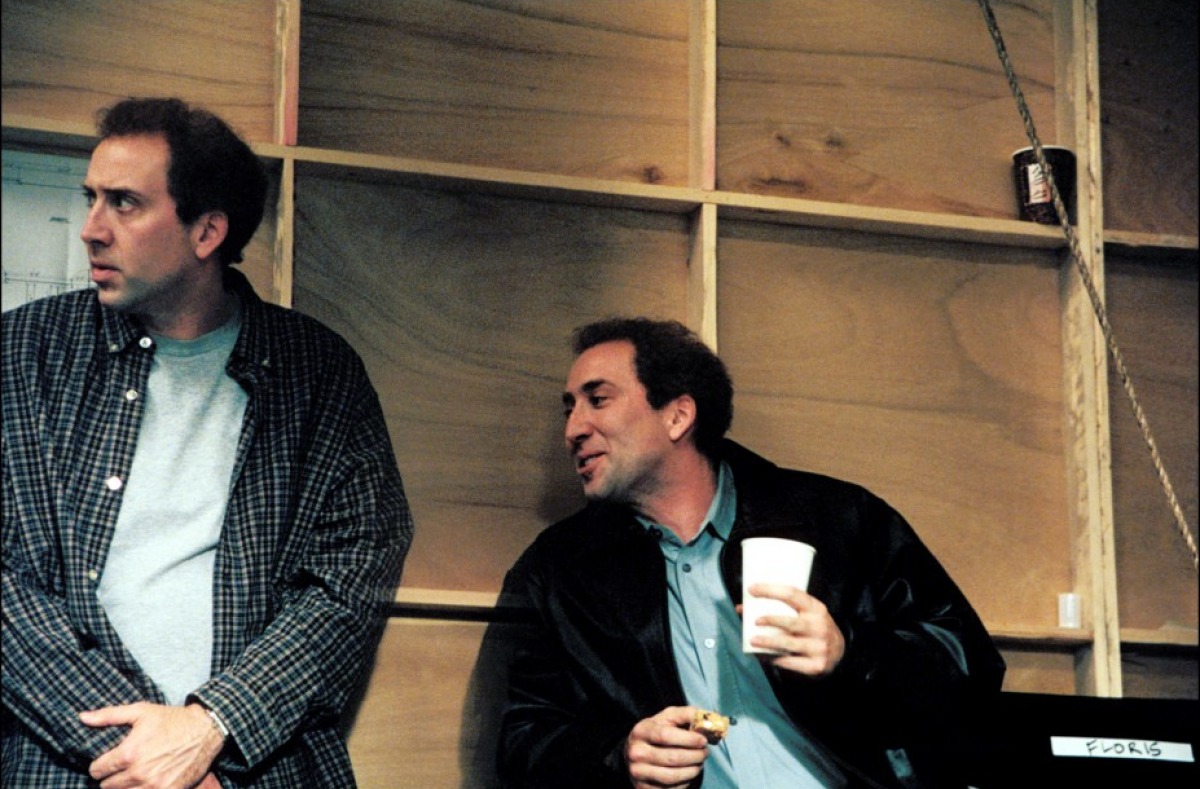
Even though every year we get a handful of truly dreadful Nic Cage movies, we still have a few good memories to hold on to when that happens. Adaptation is most definitely one of those, as Cage brings his peculiar brand of commitment to the roles of Charlie Kaufman, the screenwriter himself, and his totally fictional twin brother Donald, created by Kaufman while writing the script to manifest his own turmoil and self-doubt about adapting Susan Orlean’s non-fiction book The Orchid Thief for the screen.
In the process of creating this outlet for the story, however, Kaufman creates a rich individual for Cage to sink his teeth into, and the actor, as usual, doesn’t hold back.
In his double performance, the infamous Californian actor acts as opposites that complete each other in a way that’s fitting for the true nature of these characters. Donald, a carefree and sloppy wannabe-writer, is sometimes simple-minded, sometimes truly wise, especially when acting opposite Charlie, the neurotic, self-serious mess that Kaufman makes of himself on screen.
Cage manages that dynamic recklessly, but that’s exactly what the film needs: an actor willing to jump towards the abyss to find out what’s truly there.
2. Paul Dano in There Will Be Blood (2007)
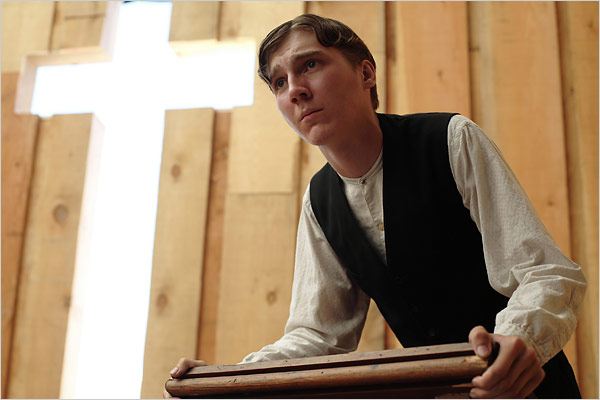
Here’s the thing: the Sunday brothers Paul Dano portrays in There Will Be Blood, Paul Thomas Anderson’s contemporary masterpiece, were not supposed to be twins. The original idea was to cast two actors on the role, with Dano initially playing only the smaller role of Paul, the youngest of the siblings.
When the actor who was going to play Eli quit, PTA decided he didn’t have time to find a replacement, so he made them twins and called upon Dano to double his part. Paul and Eli don’t even share one single scene in There Will Be Blood, but in a way the fact that they were made twins adds to the scathing commentary on American greed that is There Will Be Blood.
As Paul, Dano is slightly subdued, appearing for a brief amount of time and slyly applying a scheme on Daniel Day Lewis’ Plainview, getting the hell out of there before it all crumbles down into dust.
As Eli, his zealous and theatrical performance is even more impressive due to his previous appearance, and the rabbit hole of religious insanity he goes down, while eventually misleading, is one of There Will Be Blood’s most riveting, doomed elements. Many argued that Dano should have been nominated for an Oscar that year, and it’s not hard to see why.
1. Jeremy Irons in Dead Ringers (1988)
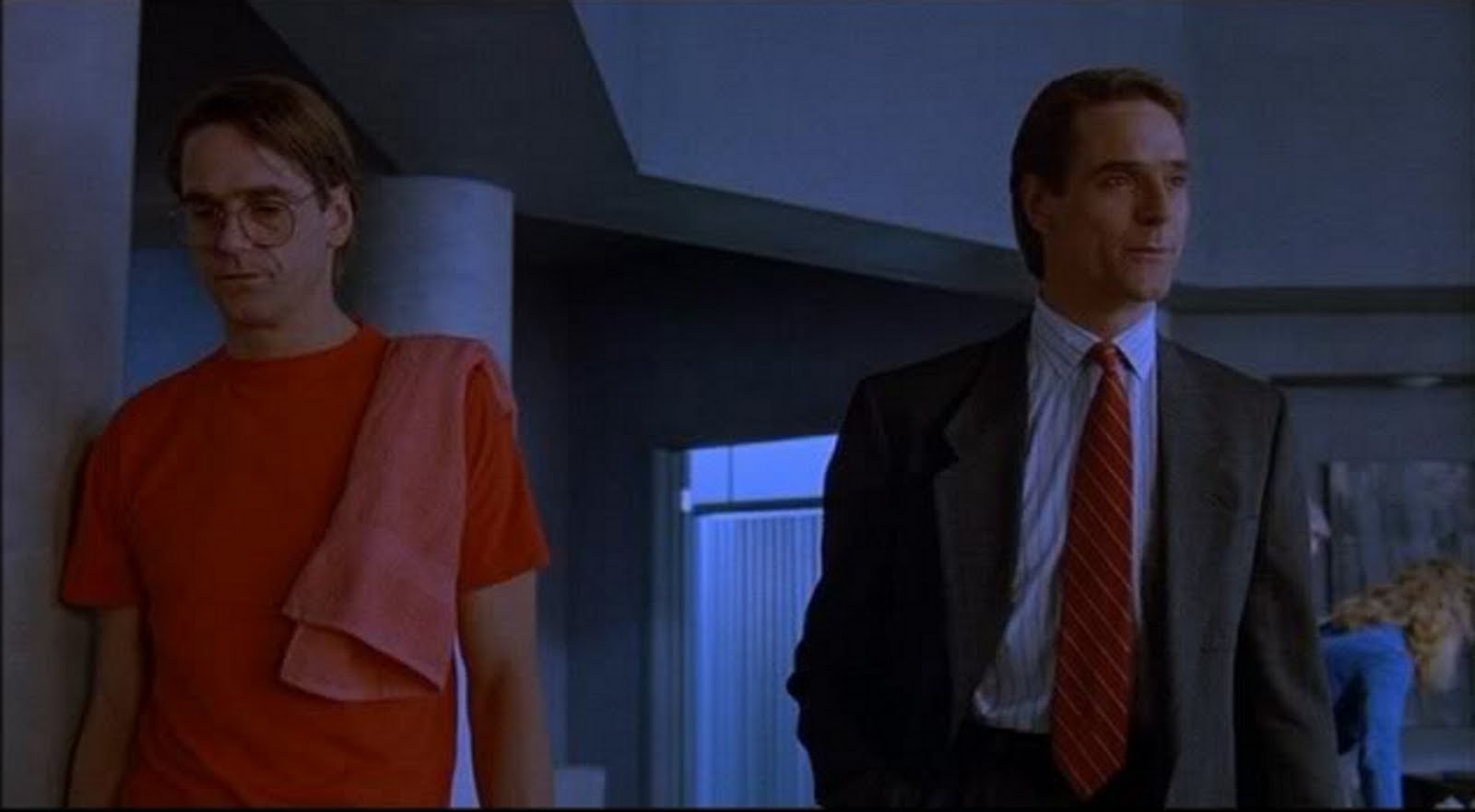
Forget Reversal of Fortune – the one (actually, two) performance you need to see if you want to understand why Jeremy Irons is one of the most revered British actors of his generations is his turns in David Cronenberg’s Dead Ringers.
This 1988 classic abuses of the director’s trademark body horror and psychologically fucked-up plots to tell the story of twin brothers Beverly and Elliot Mantle – the inseparable boys grow up to be inseparable men, and even choose the same profession (gynecologists, because of course they are).
They’re so in sync that they switch sexual partners, especially because the more detached Elliot soon tires of the women he woos, but everything goes out of balance when Claire (Genevieve Bujold) enters their lives.
The reason why Irons is so fantastic here is that he understands these characters, like the script wants him too, as two separate entities and human beings to nevertheless share an unique bond and an eerie connection to one another’s desires, behaviors and histories.
Of course it would be Cronenberg to fully explore the creepy elements of the kind of bond twin siblings share, but he needs Irons to fulfill that on screen, and the British thespian does so by composing fringe versions of the characters, be it the borderline psychopathic coolness of Elliot or the huge ball of nerves and mannerisms that is Beverly. Dead Ringers is the essential film about twins that you need to watch, and Irons does it justice.
Author Bio: Caio Coletti is a Brazilian-born journalist, a proud poptimist, and has too many opinions to keep them all to himself.